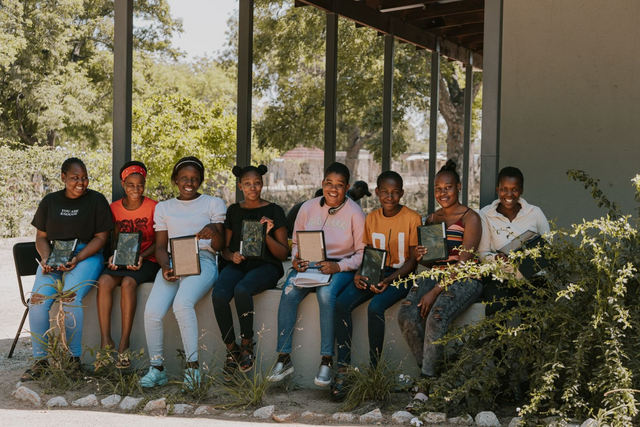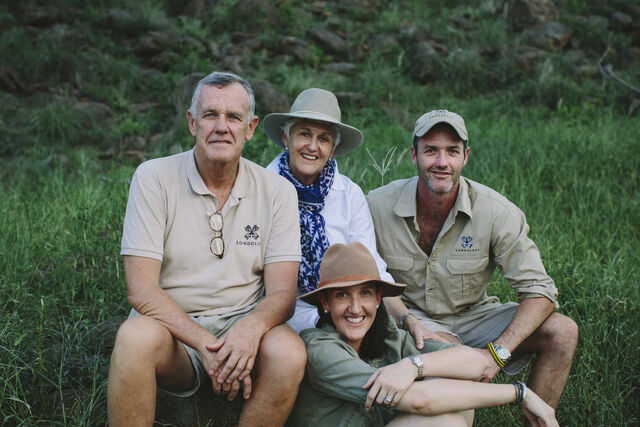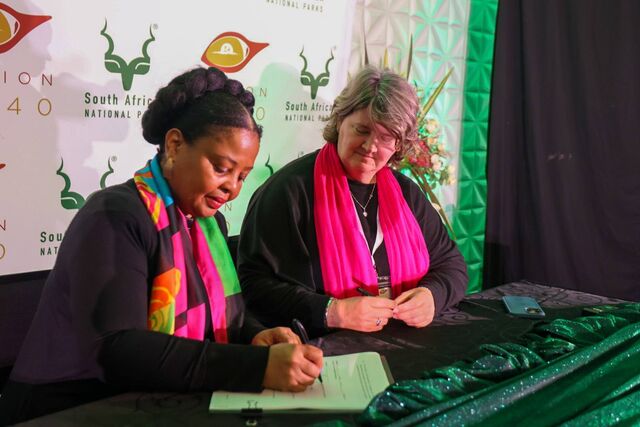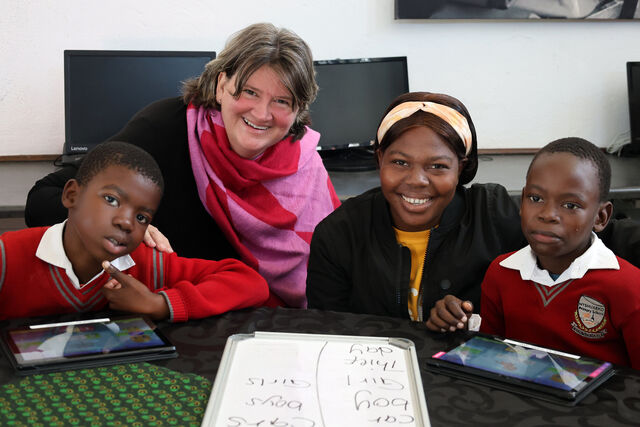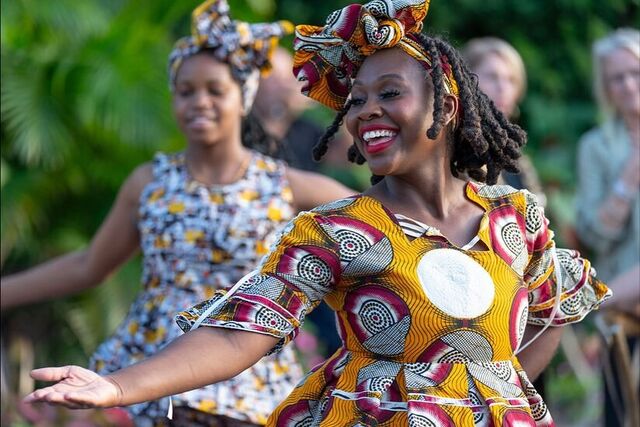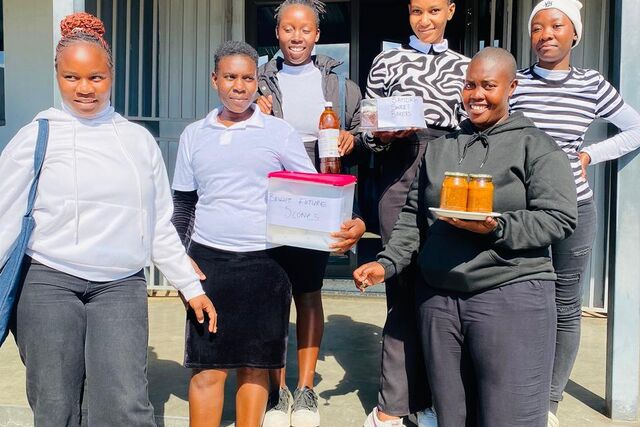Under an African tree
Nelson Mandela said, “Education is the most powerful weapon you can use to change the world.” Kate Groch said, “Give me a tree and a great teacher and I’ll educate you.” You’ll find both a tree and a few great teachers at the one-of-a-kind rural digital learning campus in Hazyview.
The concept is simple: pupils and adults have an opportunity to interact with the world, its technologies and, most importantly, its ideas at a state-of-the-art digital campus in the middle of a rural village.
The present shaped from the past …
Kate is Founder and CEO of the Good Work Foundation which has established digital learning campuses in rural communities. It works on a “hub and satellite” model.
The Hazyview hub operates out of a surprisingly modern centre that sits proudly beside a weather-beaten field where the local cattlemen graze their cows. It exists for one reason – to fill in the gaps that the formal schooling system cannot reach.
Kate has had a long career in teaching and is a true educationalist at heart. Early in her teaching career, she was employed by Dave and Shan Varty (of Londolozi) as a private tutor for their children, Boyd and Bronwyn. She travelled with the children throughout Africa, teaching them in what she referred to as her “outdoor classroom”.
“It was an incredibly rich, wonder-filled time,” she adds. “Those years shaped many of my views on learning and on life and, in fact, much of what we do at Good Work Foundation is steered by what I experienced during my time with the Varty children.”

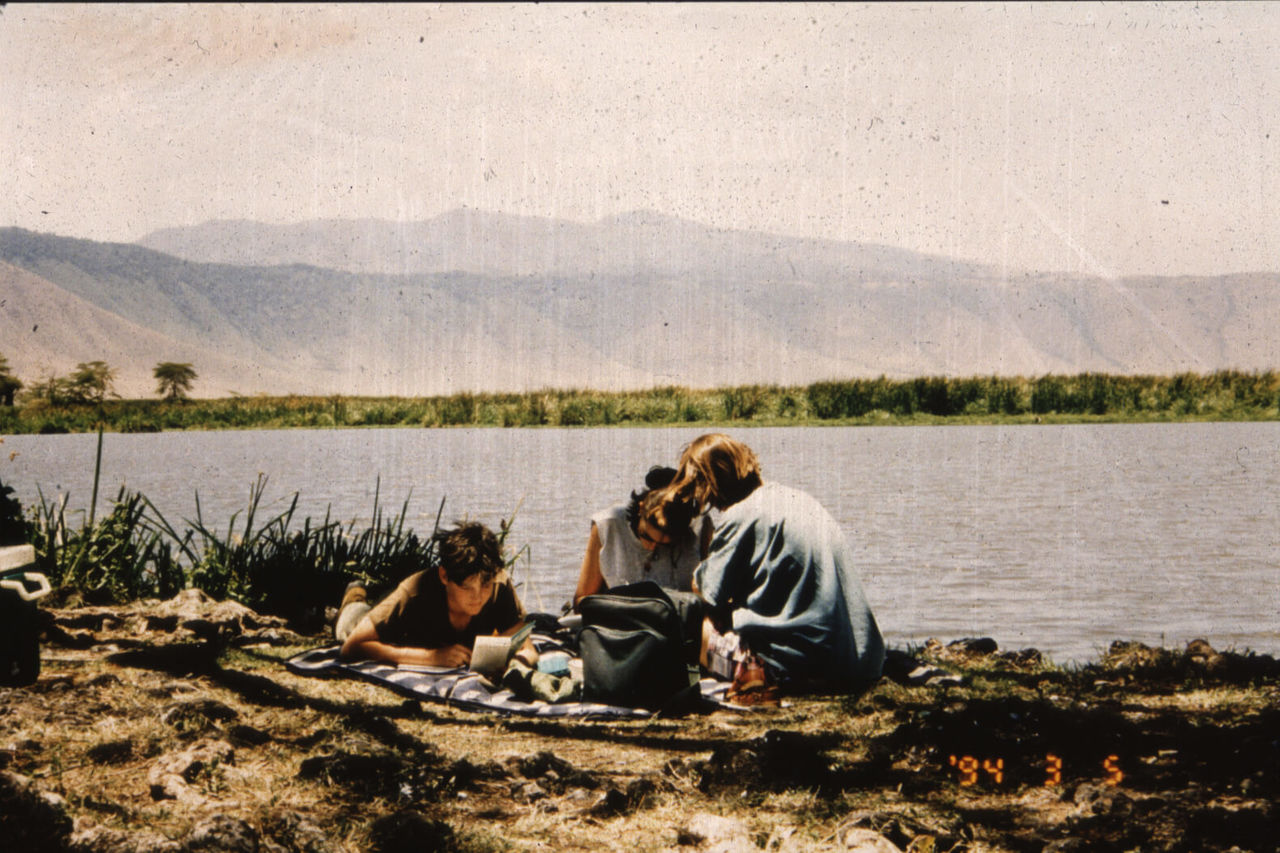
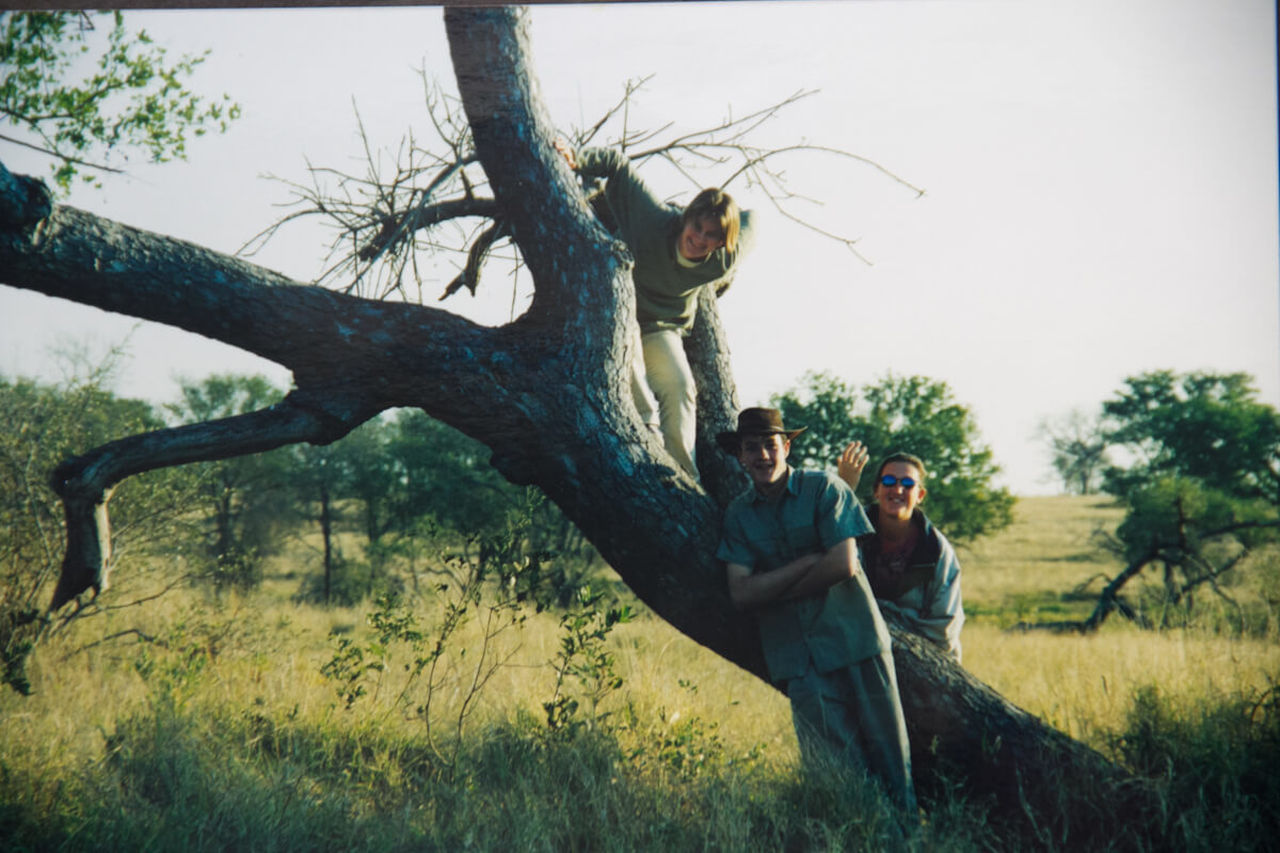
Filling in learning gaps …
Years later, with Shan Varty , Kate established an educational business in the Free State called Future Nature which explores learning opportunities in both the wilderness and rural communities. An off-shoot of Future Nature has evolved into what is now the Good Work Foundation.
“We cannot expect our country’s rural schools to build and maintain expensive media centres,” says Kate by way of introduction. “And we cannot expect them all to maintain the latest educational software and apps, let alone equip children with devices and employ teachers with the digital expertise needed to take these children into the future. More and more rural children are left behind because they are ill-equipped to navigate the digital world. I meet students every day who have completed high school in the past three years, but have never operated a computer.”
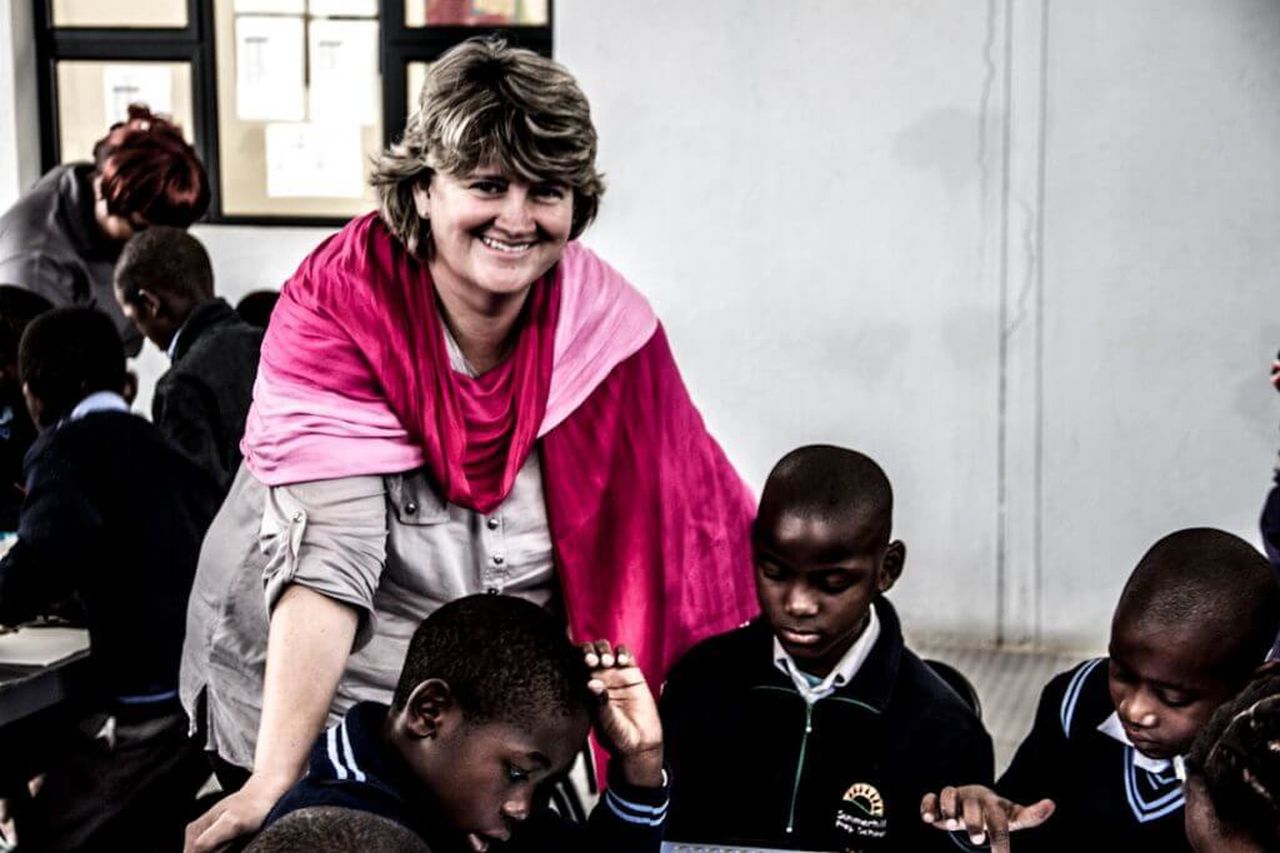
Leapfrog into the digital future …
Kate explains that the digital learning hub-and-satellite concept has turned the traditional schooling model on its head. Quite simply, the foundation has taken the best of Africa, the best of technology and come up with a solution that will “leapfrog” young children and adults from rural areas into the digital future.
Kate is quick though to point out that the GWF team is not running a school. “For our adult learners, it is a bridging post. They need to speak English and digital to go further and do better in the next phase of their lives; being gainfully employed or furthering their education at a tertiary institution. For our pupils, we supplement their school curriculum and fill in the digital gap.”
Learning under an African tree …
Kate talks to us from under what she calls the Digital Tree of Knowledge. It is a huge tree created by local artist, Simon Bannister. It stands in the middle of the learning hub, towering over learners who gather at its feet. “It’s a live digital entity,” says Kate, pointing out a monitor, USB points and other gadgets embedded in the tree.
The creation is symbolic of how rural children have always learnt; from their elders sitting under an African tree. “It is our totem,” says Kate. “While we strive to be innovative and forward thinking, we are also African – firmly rooted in our belief in the community, in ubuntu and in one another.”
From Hazyview to Hawaii …
“Imagine a ten-year-old schoolgirl, living in a rural African village,” elaborates Kate. “She walks four kilometres to her primary school every day where she shares a classroom with 46 others. She lives with her grandmother (who is probably illiterate) and five other siblings. She owns one pair of shoes.”

Kate looks around the room and smiles proudly at a group of excited young pupils, each eagerly huddled over a tablet. “Now imagine the same 10 year-old who has an eBook,” she continues. “She knows what a samurai is. She has seen a photo of the Eiffel Tower and knows it is in Paris. She has played a game of chess with a child in another country.”
This is what drives Kate and her team. At the centre, young adults and pupils are treated to a glimpse of a world beyond their borders. Absorbed in an app that sits abstractly in a cloud somewhere, they are able to dream of connecting to the global world.
A glimpse at a world beyond their borders …
“When I see the children arrive and run into the centre – bubbling with excitement and joy – I am reminded that they are literally running to learn,” adds Kate. “A teacher has told me that when a minibus drives past their school, the children shriek with excitement because they think it’s their lift to our centre.
“We took a banana barn and turned it into a fully functioning digital learning campus,” says Kate. “With technology, the game has changed. It’s no longer a logistical problem of getting books to scholars in remote rural areas or uprooting learners and sending them to expensive universities in the city. Information now sits in a cloud and this removes the probability that if you’re born in the wrong place, you will be deprived of a world-class education.”
It should never matter where a child is born …
As Kate expands on her belief that all children deserve access to a good education, she points to a photograph of her adopted daughter. Maya found her way into Kate’s life when she was only a few months old. Her biological mother was a 15-year old schoolgirl, only a child herself. The prospect of feeding and clothing another child was unrealistic for the family and Maya was put up for adoption. “When they put Maya into my arms, I was lost.”
Kate recalls how she used to carry baby Maya in a pouch when she was teaching. “Writing furiously on the blackboard one day, I heard funny squeaking noises coming from the pouch. It was Maya; she was covered in chalk dust and was sneezing.”
Maya’s life has been deeply enriched. She has had the opportunity to interact with the world and all its ideas and technology. “Maya reminds me every day that it should never matter where a person is born; everyone should be given the opportunity to reach their full potential.”
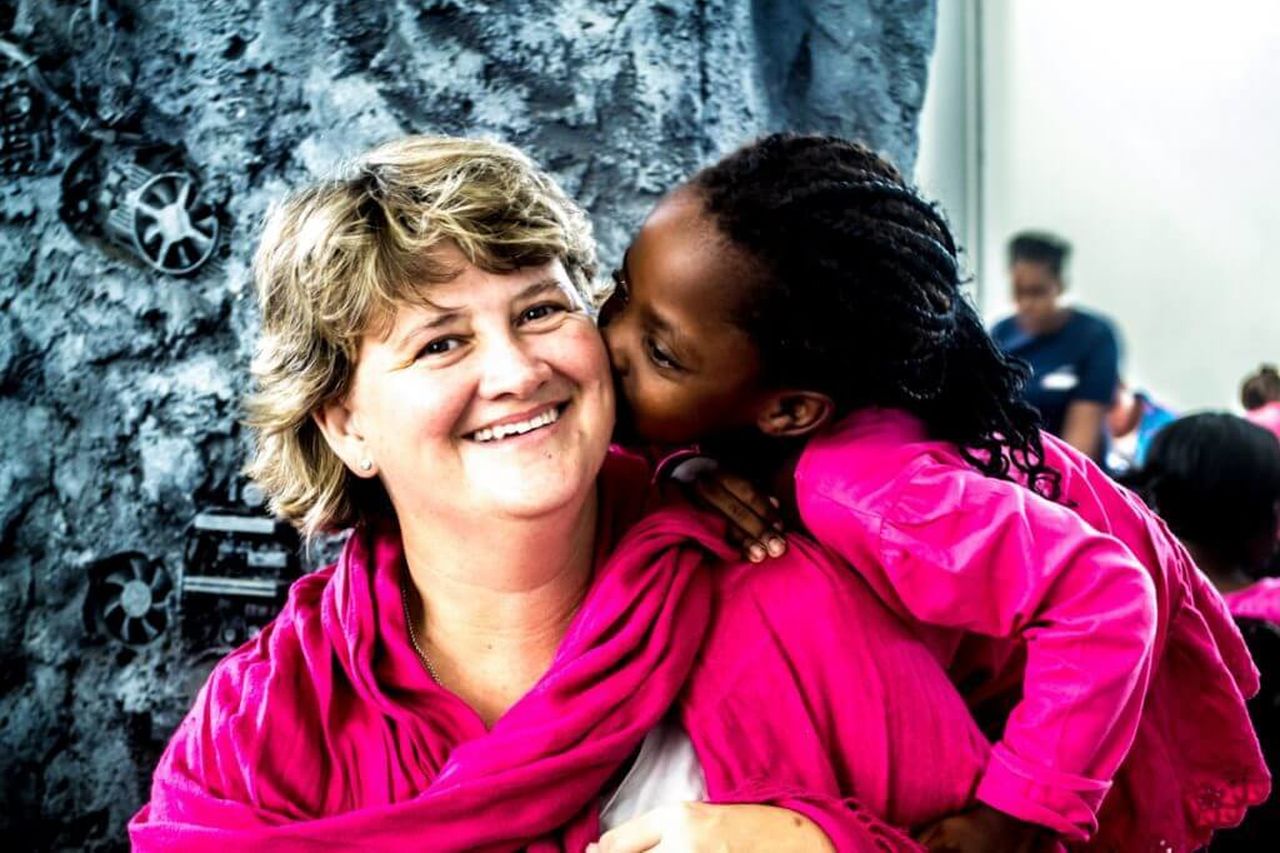
Dreaming of a digital future …
“I have found my skin here, working with the team to help people to be themselves,” she says.
“A lot of the traditional schools don’t bring out the magic in our children. If you ask any child from a rural village what they want to do when they leave school, they usually say they want to get a job. Very few of the children dream of ‘being something’. We can use digital technology to leapfrog existing education structures and thus change the lives of an entire generation of young people in rural Africa.”
To watch Kate's 2013 TEDInstitute talk, click here.
A version of this article was written by Gayle Davies-Webb and originally published on GET IT LOWVELD.
